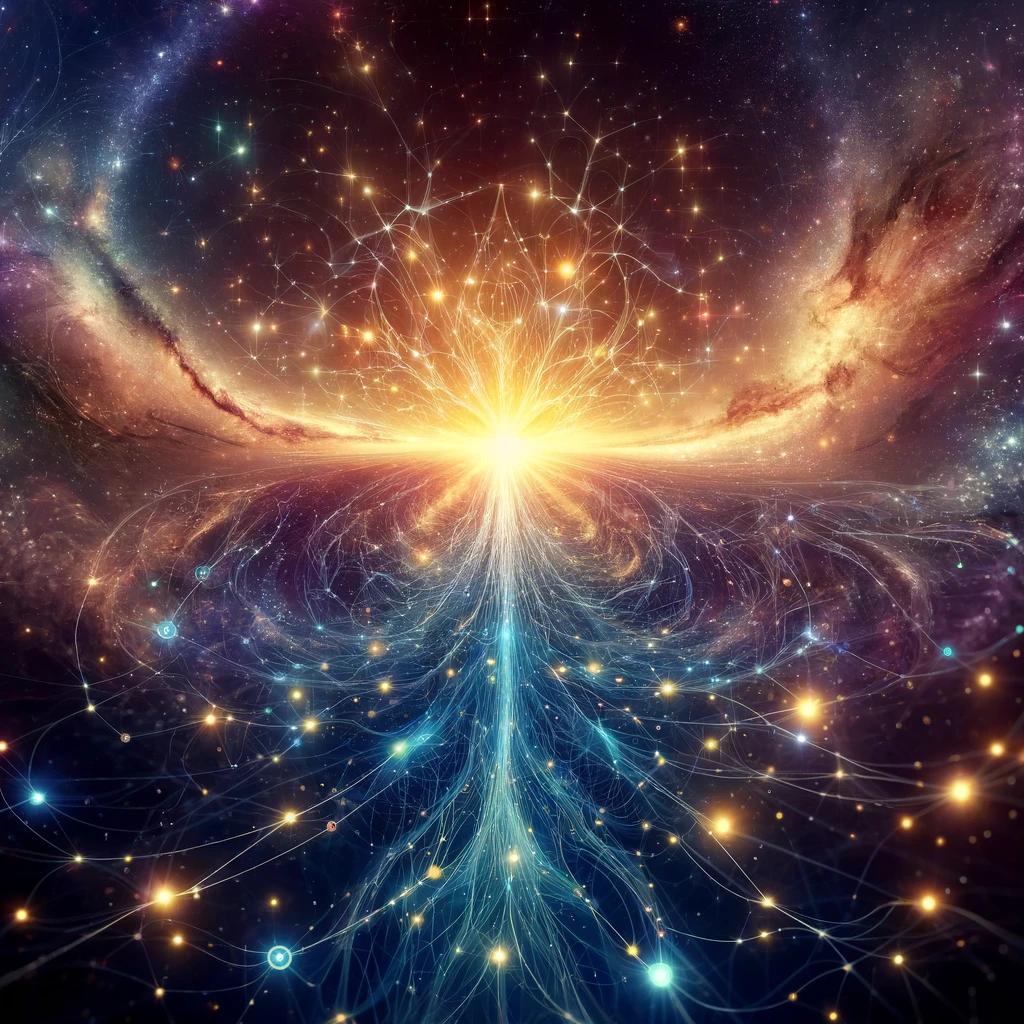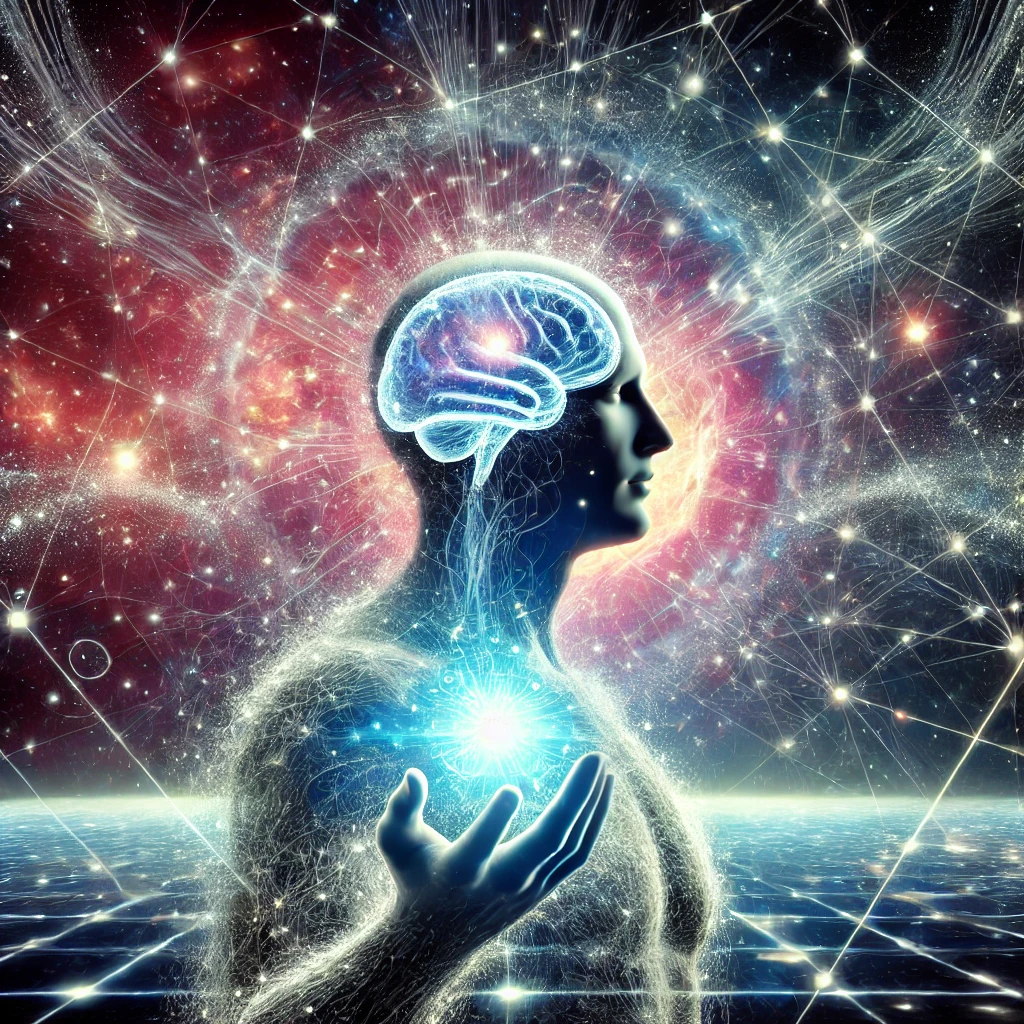Introduction
Is the universe itself conscious? This profound question has puzzled philosophers, scientists, and spiritual seekers for centuries. Panpsychism, the theory that consciousness is a fundamental feature of reality, suggests that everything—from the smallest particles to galaxies—possesses some form of awareness.
As discussions around quantum mechanics, artificial intelligence, and near-death experiences (NDEs) grow, more thinkers are exploring panpsychism as a possible explanation for consciousness. In this article, we will dive deep into panpsychism, its implications, scientific arguments, and criticisms while exploring whether the universe truly has a mind of its own.
What is Panpsychism?

Panpsychism is the philosophical belief that all matter has some degree of consciousness. This does not mean that a rock “thinks” like a human but rather that consciousness exists as a fundamental property of reality, just like mass or energy.
The word “panpsychism” comes from the Greek words pan (all) and psyche (soul/mind). Unlike materialism, which asserts that consciousness emerges from complex brain activity, panpsychism suggests that consciousness is everywhere, even in the smallest subatomic particles.
The Science Behind Panpsychism
1. Quantum Mechanics and Consciousness
Quantum physics has challenged classical ideas of reality. The famous double-slit experiment suggests that particles behave differently when observed, leading to debates about the role of consciousness in physical phenomena. Some theorists, like physicist John Wheeler, proposed the participatory universe, where consciousness influences reality.
2. Integrated Information Theory (IIT)
Developed by neuroscientist Giulio Tononi, IIT proposes that consciousness arises from information integration. The theory suggests that any system with highly integrated information—such as the human brain or even complex networks—may exhibit some level of awareness. This aligns with panpsychism, implying that the universe, as a highly interconnected system, could possess consciousness.
3. The Role of Dark Matter and Energy
Over 95% of the universe consists of dark matter and dark energy, yet we know very little about their nature. Some theorists speculate that these unseen forces might be connected to a universal consciousness that permeates everything.
Philosophical Perspectives on Panpsychism
1. Alfred North Whitehead and Process Philosophy
Whitehead, a 20th-century philosopher, argued that reality is not made of static objects but of experiences. His process philosophy supports the idea that everything, from atoms to galaxies, undergoes experiences, albeit at different levels of complexity.
2. David Chalmers and the Hard Problem of Consciousness
Chalmers, a leading philosopher of mind, introduced the hard problem of consciousness, questioning how subjective experiences arise from mere brain activity. He proposed panpsychism as a possible solution, suggesting that consciousness does not emerge but is already a part of everything.
Panpsychism and Artificial Intelligence (AI)

Could AI ever be conscious? If panpsychism is true, even artificial neural networks could possess a form of rudimentary awareness. This raises profound ethical questions:
- Should AI entities have rights?
- Can machines experience emotions or pain?
Researchers in machine consciousness are already exploring these ideas, bridging panpsychism with modern technology.
Criticisms of Panpsychism
Despite its appeal, panpsychism faces several challenges:
- Lack of Empirical Evidence – Unlike neuroscience or physics, there is no direct way to measure consciousness in atoms or the universe.
- The Combination Problem – How do simple forms of consciousness (like those in particles) combine to create human-like awareness?
- Alternative Theories – Materialism and dualism remain dominant in scientific circles, offering competing explanations for consciousness.
Is the Universe a Living Organism?
Some interpretations of panpsychism propose that the universe behaves like a giant brain. Scientists have found surprising similarities between the structure of the cosmic web (the large-scale structure of galaxies) and human neural networks. Could this suggest that the universe itself processes information like a mind?
How Panpsychism Relates to Near-Death Experiences (NDEs)
Near-death experiences often involve encounters with a universal presence, heightened awareness, and timelessness. These reports align with the idea that consciousness extends beyond individual minds and is part of a greater, universal intelligence.
(For an in-depth discussion on NDEs and consciousness, check out our article: Do Near-Death Experiences Prove Consciousness is Non-Local?)
Conclusion: Is the Universe Itself Conscious?
While panpsychism remains controversial, it offers a compelling middle ground between scientific materialism and spiritual idealism. If consciousness is truly a fundamental property of reality, then we are not separate observers but active participants in a living, aware cosmos.
As we advance in quantum physics, neuroscience, and AI, future discoveries may bring us closer to answering one of the biggest mysteries of existence: Is the universe itself conscious?
External Resources for Further Reading:
- Scientific American – Is Consciousness Universal?
- Nature – The Mind of the Universe
- Integrated Information Theory (IIT)